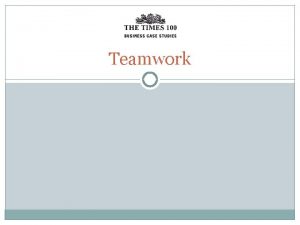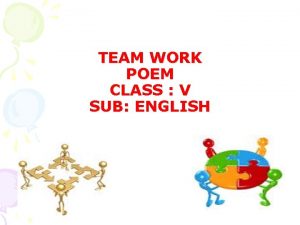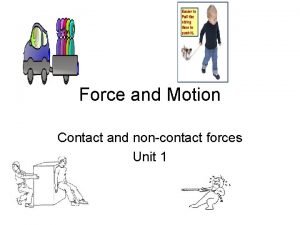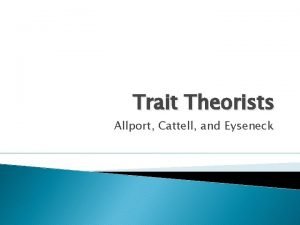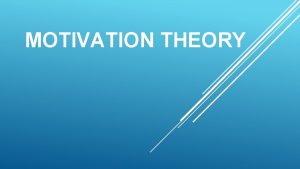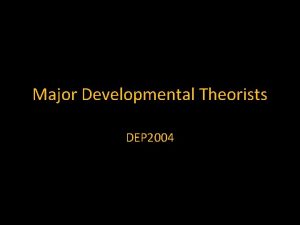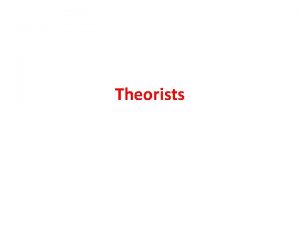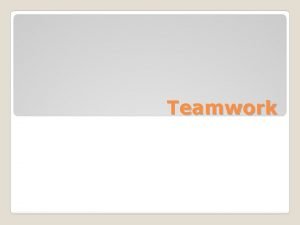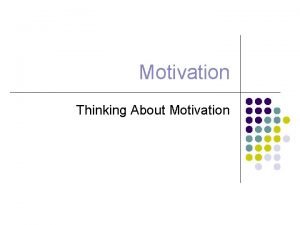Teamwork Teamwork and motivation Some motivational theorists have







- Slides: 7

Teamwork

Teamwork and motivation Some motivational theorists have identified the importance of teamwork for motivating employees: Abraham Maslow – social needs feature in his hierarchy of needs Elton Mayo – theory of human relations concludes that teamwork and management interest in the workers are necessary for employee motivation

Importance of teamwork Teamwork can: Increase labour productivity Encourage innovation Improve employee commitment and motivation Increase quality Lower absenteeism and labour turnover

Formal and informal teams Formal groups are developed to meet given organisational objectives. Members have defined roles and there will be a leader. Informal groups are based on the relationships between group members. They are concerned with social and psychological needs rather than business objectives. Informal groups may provide support formal groups.

Characteristics of effective teams Effective teams are likely to display the following characteristics: Clear, shared goals Defined roles Open and honest communication Mutual trust Effective decision making Balanced participation and leadership Co-operation Ways of managing conflict

Effectiveness of teams The effectiveness of a team can depend upon: The skills and abilities of the team members The size of the group The task to be undertaken

Belbin’s team roles Belbin identified a number of roles of team members: Plant – creative problem solver Resource investigator – extrovert and enthusiastic Co-ordinator – mature and good delegator Shaper – dynamic and driven Monitor-evaluator – strategic thinker Team worker – co-operative and calming Implementer – reliable and efficient Completer – conscientious perfectionist Specialist – provides knowledge and skills
